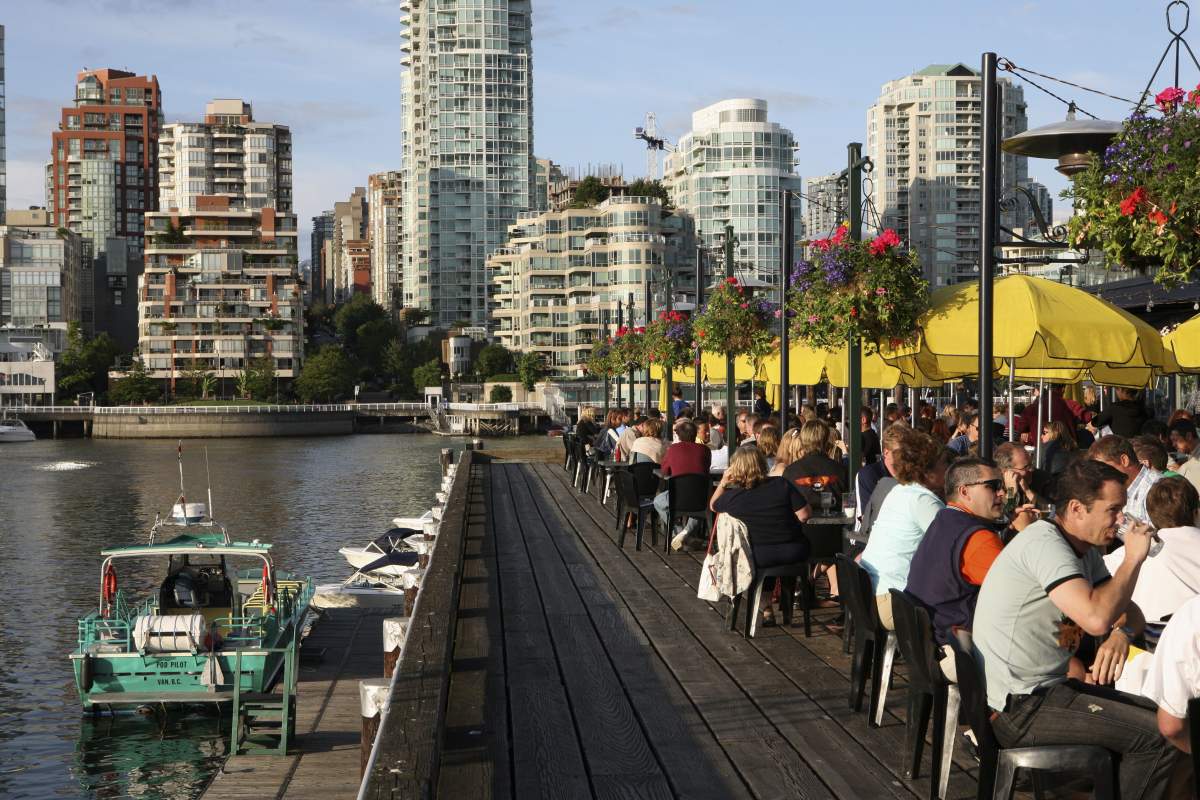A new Vancouver group is warning that Granville Island is losing its creative roots and risks becoming an empty tourist destination.

The Friends of Granville Island made its pitch in a new video and includes support from island artisans and merchants, along with key figures in the original development of the area.
“The island’s been reasonably successful, I just think it’s fading a little and needs some re-creative thinking,” said Russel Brink, Granville Island’s first project manager.
Granville Island originally served as an industrial district but was transferred from the National Harbours Board to the Canada Mortgage and Housing Corporation (CMHC) in 1972.
The initiative at the time was spearheaded by former Vancouver Centre MP and minister of state for urban affairs Ron Basford, who Brink said had a vision to transform it from an eyesore into a creative and mixed-use neighbourhood.
That grew to include the famous public market, which opened in 1979, along with artisans, craft workers, restaurants, industrial users and the Emily Carr University of fine arts and design.

Get daily National news
Since then, Emily Carr and its crop of students has moved to the False Creek Flats, while its buildings sits mostly empty. Some artisans on the island also say they can’t afford to stay in the area.
In the same period, Granville Island has become one of the city’s premier tourist destinations, and some of the people involved in the initial development now say the island risks becoming a victim of its own success.
“In our plan, we always planned the place for the people of Vancouver,” said Norm Hotson, project architect for 1970s redevelopment, in the video.
“If tourism occurred, our view was it was strictly icing on the cake. You can’t start to lose the cake, because the icing’s not enough.”
The future of Granville Island was the focus of a broad-scope 2017 CMHC report called Granville Island 2040: Bridging Past & Future.
That report came up with some big ideas, including an elevator to the Granville Bridge deck and a bridge connecting Granville Island to the seawall across Alder Bay.
It also recommended exploring ways to put more of the island’s governance in local hands.

In 2019, a new Granville Island Council was created and charged with making budget decisions and long-term strategy, replacing the advisory-only Granville Island Trust.
Council members, are appointed by the federal minister responsible for the CMHC and serve a four-year term.
“CMHC is a residential mortgage company,” said Brink.
“There isn’t a single residential mortgage on Granville Island. There’s a bit of a mismatch between the governance and the nature of what is being governed.”
The group says it wants Granville Island to remain as a federally managed asset.
But it says it wants management turned over to an independent organization based in the local community and more receptive to its needs and wants, and which could seek additional funding to improve and revitalize the island.








Comments
Want to discuss? Please read our Commenting Policy first.